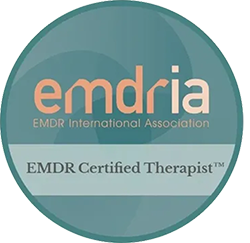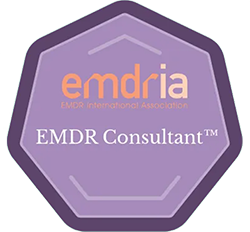Event Details
- Date: June 21, 2025
- Time: 9:00 AM – 1:00 PM
- Location: Peñascal Beach, San Bartolo, Lima, Peru
- CE Credits: 4 CE credits approved (CEPA PROVIDER #146123)
Integrated Trauma-Informed, EMDR, and Evidence-Based Approaches for Neurodiverse Adults and Individuals with IDD with Co-Occurring Disorders
Integrated Trauma-Informed, EMDR, and Evidence-Based Approaches for Neurodiverse Adults and Individuals with IDD with Co-Occurring Disorders
Description:
This specialized clinical workshop equips mental health professionals and practitioners with trauma-informed, evidence-based strategies tailored for neurodiverse populations, including individuals with Autism Spectrum Disorder (ASD), Fetal Alcohol Spectrum Disorder (FASD), Intellectual and Developmental Disabilities (IDD), and Pathological Demand Avoidance (PDA). Standard therapeutic approaches often fail to address these individuals' complex cognitive, sensory, and behavioral needs. This training offers an integrated model that enhances accessibility and effectiveness in trauma-focused interventions.
Participants will learn to create supportive and inclusive therapeutic environments while mastering interventions that address the unique challenges faced by neurodivergent individuals, particularly those with co-occurring conditions. Special attention is given to overcoming systemic barriers such as the scarcity of specialized providers, lack of culturally responsive materials, and limitations in traditional therapeutic models. This workshop actively embodies IDEA (Inclusion, Diversity, Equity, and Access) principles, ensuring that all individuals—regardless of cognitive abilities, identity, or background—receive equitable access to trauma-informed care.
This training integrates the Adaptive Information Processing (AIP) model as a foundational framework, seamlessly incorporating Motivational Interviewing (MI), Cognitive Behavioral Therapy (CBT), Dialectical Behavior Therapy (DBT), Sensory Integration, and Eco-Somatic Strategies within the standard 8-phase, 3-pronged EMDR protocol. This comprehensive, evidence-based approach enhances client engagement, optimizes memory reprocessing, and improves treatment outcomes—particularly for neurodivergent individuals.
The workshop also highlights the biological, psychological, and social impact of trauma on individuals with neurodevelopmental disabilities. Through a combination of EMDR, sensory integration techniques, eco-somatic interventions, and cognitive-behavioral approaches, clinicians will be equipped to address trauma-related challenges with greater efficacy. Participants will gain practical skills to mitigate the lasting effects of trauma, foster resilience, and improve long-term healing and recovery outcomes for individuals with ASD, FASD, IDD, and PDA. By integrating innovative, multidisciplinary methods, clinicians can transform their approach and foster meaningful, lasting change in the lives of their clients.
Learning Objectives
Upon completion of this course, participants will be able to:
- Identify at least five examples of traumatic events and describe their short- and long-term adverse effects on mental, emotional, and physical well-being.
- Explain at least three ways trauma affects neurodivergent populations, including individuals with intellectual and developmental disabilities (IDD) and co-occurring mental health conditions.
- Summarize at least two neurobiological effects of trauma and explain how prenatal alcohol exposure affects brain development and behavior.
- Choose at least three appropriate evidence-based intervention strategies for person-centered planning in Fetal Alcohol Spectrum Disorder (FASD) cases and justify their effectiveness.
- Describe Motivational Interviewing (MI) principles and neurodiversity-affirming modifications to Eye Movement Desensitization and Reprocessing (EMDR) therapy.
- Demonstrate at least two sensory integration applications and Eco-Somatic Approach techniques in simulated scenarios, integrating them with EMDR to enhance trauma healing.
- Distinguish between evidence-based treatments such as EMDR, CBT, and DBT by categorizing their core methodologies and evaluating their treatment outcomes.
Training Agenda
9:00 AM - 9:05 AM | Welcome and Introductions
- Icebreaker Activity and Quick Poll
Part 1: Foundations of Trauma-Informed Care (TIC) and Neurodiversity (9:05 AM - 9:35 AM | 30 minutes)
A. Overview of Trauma-Informed Care
- Principles, applications, and impact
B. The Impact of Traumatic Events
- Types of traumas and their effects
C. The Brain and Body on Trauma
- Understanding physiological and psychological responses
D. Core Principles of Trauma-Informed Care
- The Six Pillars for Success
E. Neurodiversity and Trauma
- Understanding Autism, ADHD, PDA, FASD, and IDD as natural variations in human cognition
- Intersection of neurodiversity with trauma-informed care
Case Study 1:
- Analyze a trauma-informed approach scenario: Identify TIC practices in their work.
- Discuss how trauma affects behavior and coping.
- Create a collaborative trauma-effects map.
- Guided Imagery: Understand trauma responses.
- Experiential Exercise: Act out trauma responses.
- Body Scan Exercise: Demonstrate grounding techniques.
- Matching Activity: Participants align TIC principles with real-world cases.
Part 2: Trauma and Co-Occurring Disorders in Adults with IDD (9:35 AM - 10:05 AM | 30 minutes)
A. The Impact of Trauma on Individuals with IDD
B. PTSD and Co-Occurring Disorders in Adults with IDD
- Challenges and considerations
- Addressing trauma in IDD populations with complex mental health needs
Case Study 2:
- Analyze a client with IDD and trauma: Identify barriers and adjust interventions.
- Modify TIC strategies for IDD clients.
- Practice trauma-sensitive communication.
Think-Pair-Share Activity:
- “How do PTSD symptoms manifest in adults with IDD?”
Part 3: Fetal Alcohol Spectrum Disorder (FASD) and Trauma-Informed Approaches (10:05 AM - 10:35 AM | 30 minutes)
A. Trauma and FASD
- Understanding the connection
B. Neurobiological Effects of Trauma and Prenatal Alcohol Exposure
C. Trauma-Informed Interventions for FASD
- Practical strategies and applications
D. Pathological Demand Avoidance (PDA) Overview
- The role of trauma and therapeutic resistance in PDA
Case Study 3:
- Participants analyze client’s trauma history.
- Guided Discussion: Present brain imaging visuals of trauma effects.
- Debrief: Discuss challenges in identifying trauma in FASD clients.
- Hands-On Exercise: Adapt therapy strategies for PDA clients.
10:35 AM - 10:50 AM | Break (15 minutes)
Part 4: The Science of Healing: Applying EBT and Innovative Clinical Interventions (10:50 AM - 1:15 PM)
A. EMDR Therapy & Motivational Interviewing (MI) for PDA Clients
- EMDR Case Demonstration and Breakout Discussion: “How can motivational interviewing be useful in engaging resistant clients?”
B. Cognitive Behavioral Therapy (CBT) for Trauma-Informed Care
- Interactive Worksheet: Modify a CBT worksheet for trauma survivors
- Small Group Role-Play: Practice reframing negative cognitions
C. Integrative and Somatic-Based Approaches
- MI Strategies, EMDR 2.0, Flash Technique
- Live Demo: Practice the Flash Technique for trauma reduction
- Pair Exercise: Role-play MI techniques
- Sensory Integration and Eco-Somatic Approaches
- Guided Discussion: “How do sensory-based therapies support trauma healing?”
- Live Demonstration: Simple sensory interventions
- Nature-Based Healing: Ocean & Surf Therapy in Trauma Care
- Experiential Exercise: Brief mindful movement or grounding practice
- Discussion Question: “What are creative ways to integrate nature-based healing?”
Specialized Courses by Dr. Linda Timme
Join the Extended Peru Experience | June 21–25, 2025
Enhance your clinical expertise while earning Continuing Education (CE) credits in a transformative, immersive learning experience.
Flexible Learning Options:
- In-Person & Telehealth Modalities
- Recorded Sessions Available – Learn at Your Own Pace
Continuing Education (CE) Approved Workshops
All courses are approved for Continuing Education (CE) hours under CEPA Provider #146123.
- EMDR and Couple Therapy: A Path to Compassionate Healing and Relationship Transformation – 12 CEs + 12 EMDRIA Credits (EMDRIA Event Approval #24054-01)
EMDRIA Link: https://www.emdria.org/event/emdr-and-couple-therapy-july-2025/
- Suicide Prevention: Evidence-Based Assessments, Strategies, and Best Practices – 5 CEs
All course materials are available in English and Spanish.
Contact us to register and elevate your professional practice!









































